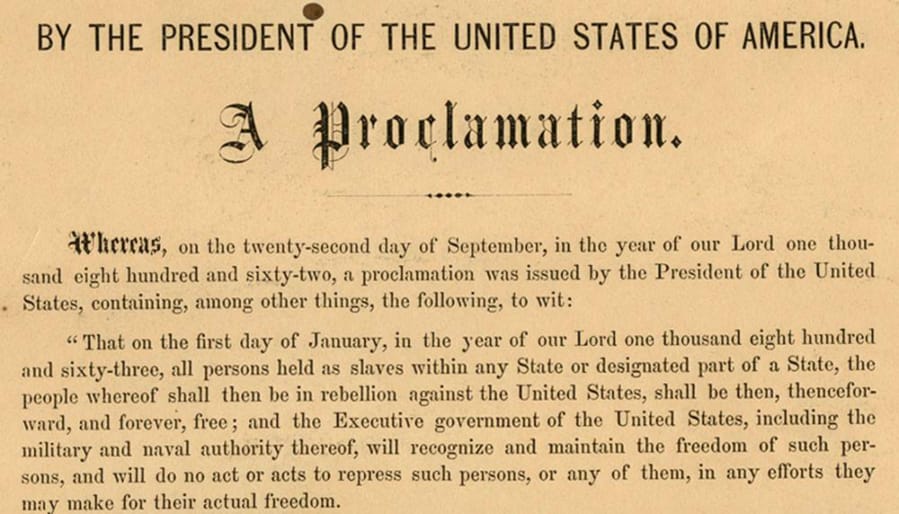Most Americans have heard about the Emancipation Proclamation. But too few Americans know the whole story of African American freedom during and after the Civil War. It wasn’t at all like the sudden switching-on of a light. Even after the end of the war, it took time, and continued pressure, for emancipation to take hold throughout the still-fractious nation.
President Abraham Lincoln’s Emancipation Proclamation banned slavery throughout the rebellious Confederacy as of Jan. 1, 1863, and the 13th Amendment to the U.S. Constitution permanently banned slavery across the nation in early 1865. But even after the surrender of the Confederacy and the official end of the war, in early April 1865, Texas still refused to comply.
On June 18, 1865, Union General Gordon Granger and 2,000 federal troops arrived in Galveston, Texas; on June 19, Granger stood on a balcony and read aloud a declaration: “The people of Texas are informed that, in accordance with a proclamation from the Executive of the United States, all slaves are free.”
Freed slaves rejoiced in the streets that day, and the following year saw the beginning of Juneteenth celebrations in Texas and elsewhere. There is still no federal Juneteenth holiday, but most states have adopted Juneteenth as a state holiday. Washington made it a state observance in 2007.




